Anger over bridge closure for concrete removal
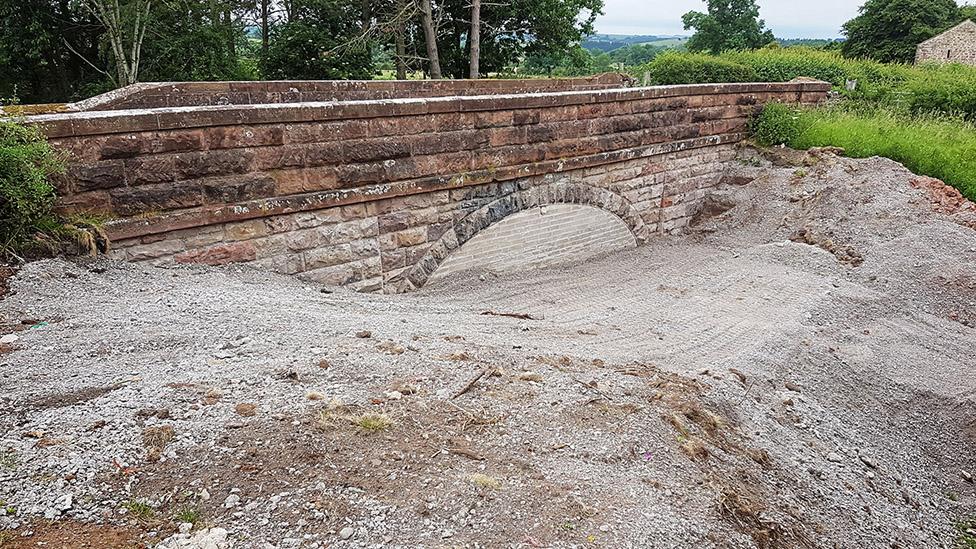
Hundreds of tonnes of concrete need to be removed under Great Musgrave Bridge, Cumbria
At a glance
Concrete infill under Great Musgrave Bridge has to be removed by 11 October
National Highways plans to close the bridge for 13 weeks
The body says this is protect the workforce
The parish council says the closure is "unacceptable"
- Published
Plans to close a bridge for 13 weeks to remove controversial concrete infill have renewed anger among residents, businesses and a heritage group.
Roads body National Highways (NH) poured hundreds of tonnes of concrete under Great Musgrave Bridge, Cumbria, in July 2021 but was ordered to remove it.
Musgrave Parish Council said the closure was "unacceptable" and was decided without consultation.
NH said contractors needed protection and it would work "as quickly and sensitively" as it could.
Parish council chairman Tim Wells said: “It’s absolutely ridiculous - have they learned nothing?
"How can National Highways not understand the impact this closure will have on villages served by this crucial road?"
Several farms, a business and schoolchildren needed to cross the bridge each day, and residents used it to go to work and to shop, Mr Wells added.
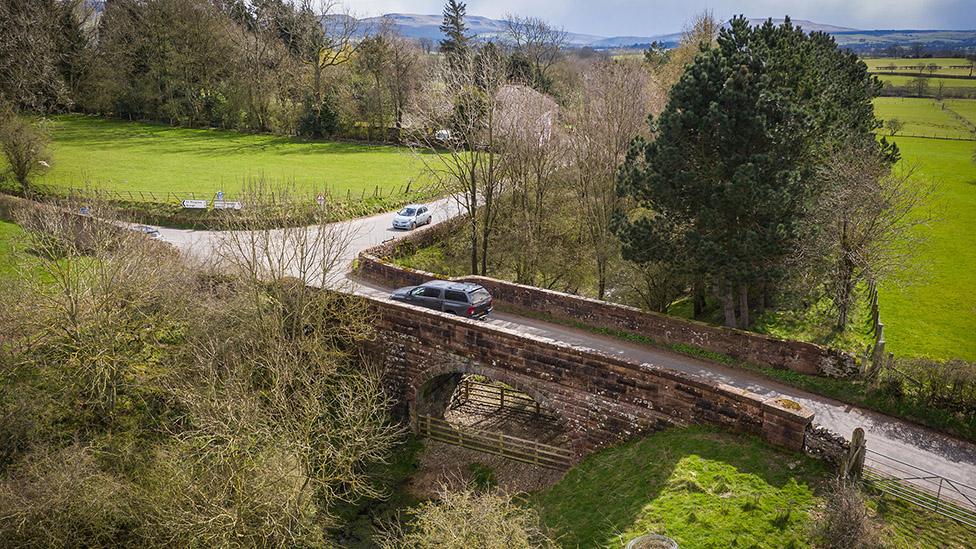
Railway groups said the unfilled bridge was needed as a link between two heritage railways
NH said the infill had been essential for public safety and to stabilise the Victorian structure but critics branded the move "cultural vandalism".
The roads agency said the bridge, built in 1862, was at risk of collapse if used by heavy vehicles but opponents claimed it could hold lorries weighing up to 44 tonnes and 800 people objected to the work.
Eden District Council, the authority then in charge, refused retrospective planning permission and ruled the concrete must be removed by 11 October.
Sustainable transport and railways campaign group HRE group said there had been no consultation about the resulting closure.
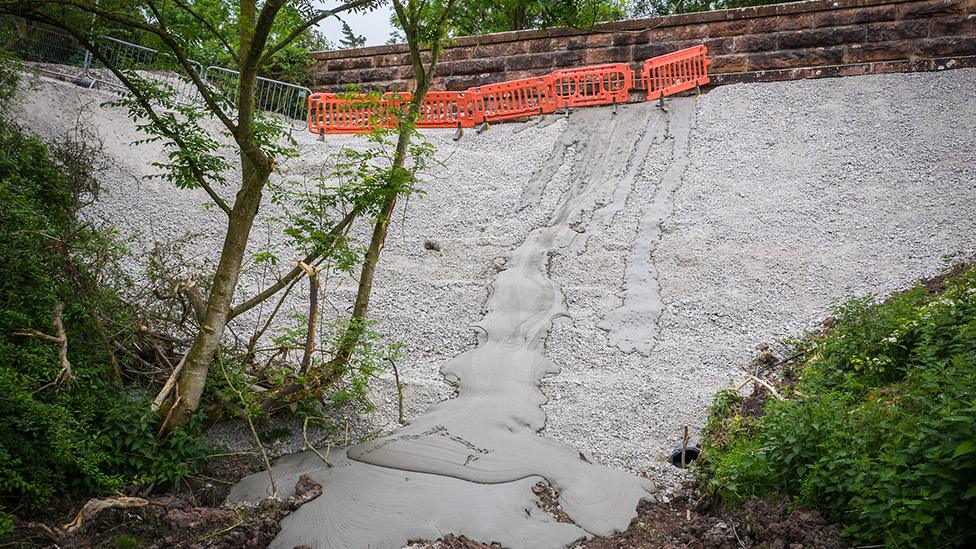
The infill was described as "cultural vandalism"
Graeme Bickerdike, from the group, said NH could not "upset community life for such a prolonged period whilst they put right a mistake they shouldn’t have made in the first place".
He said there had to be a way to ensure workforce safety while allowing local people to use the bridge.
"Continued access across the bridge, with careful traffic management, is clearly vital,” he said.
NH said the closure was "unavoidable" but its contractor would "work as quickly and sensitively" as it could.
"We know the strength of feeling in having these road closures in place overnight, which fall outside of the site working hours of 0800 until 1800, but the bridge cannot be used safely once work to remove infill has begun."
The agency said it was "committed to listening to local people so we can understand any concerns and find the best way forward".
The bridge is due to be closed from 08:00 on 17 July until 18:00 on 18 October.
Follow BBC North East & Cumbria on Twitter, external, Facebook, external and Instagram, external. Send your story ideas to northeastandcumbria@bbc.co.uk.
Related topics
- Published15 March 2023
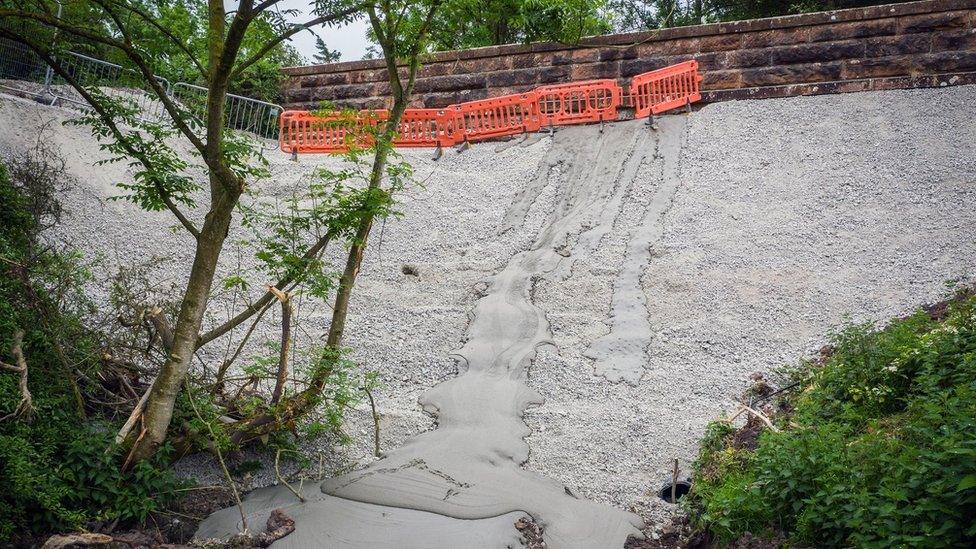
- Published6 October 2022

- Published16 June 2022
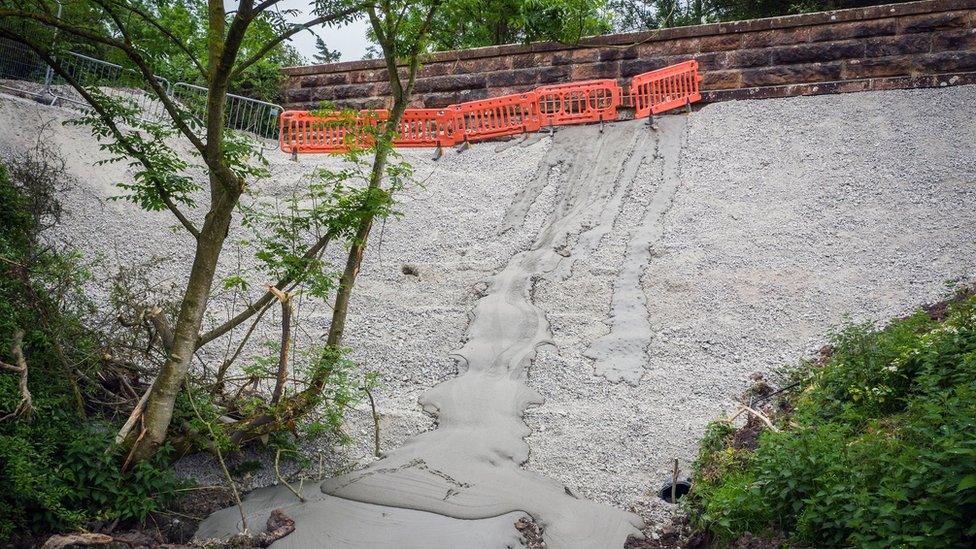
- Published15 May 2022
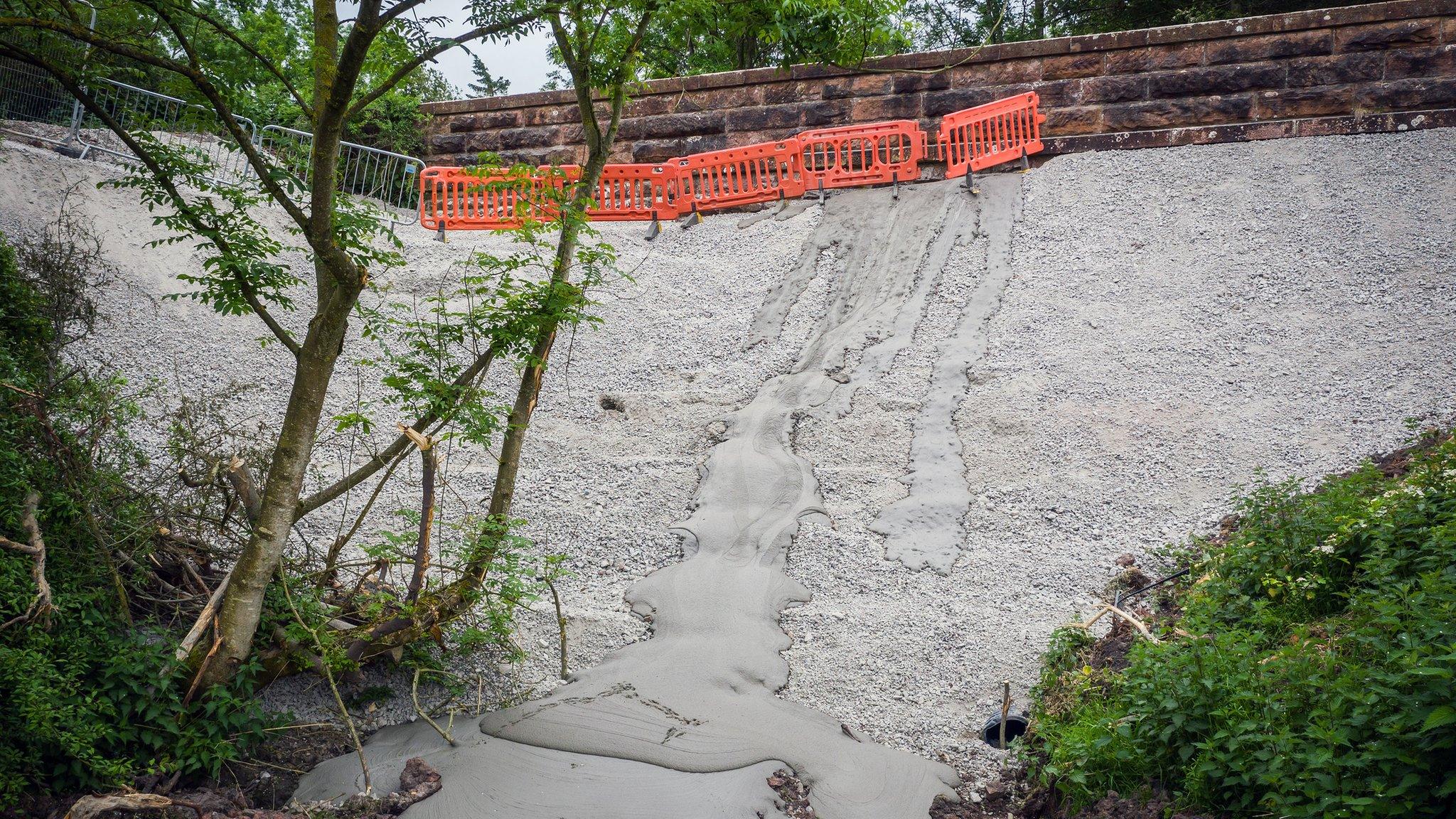
- Published23 July 2021
